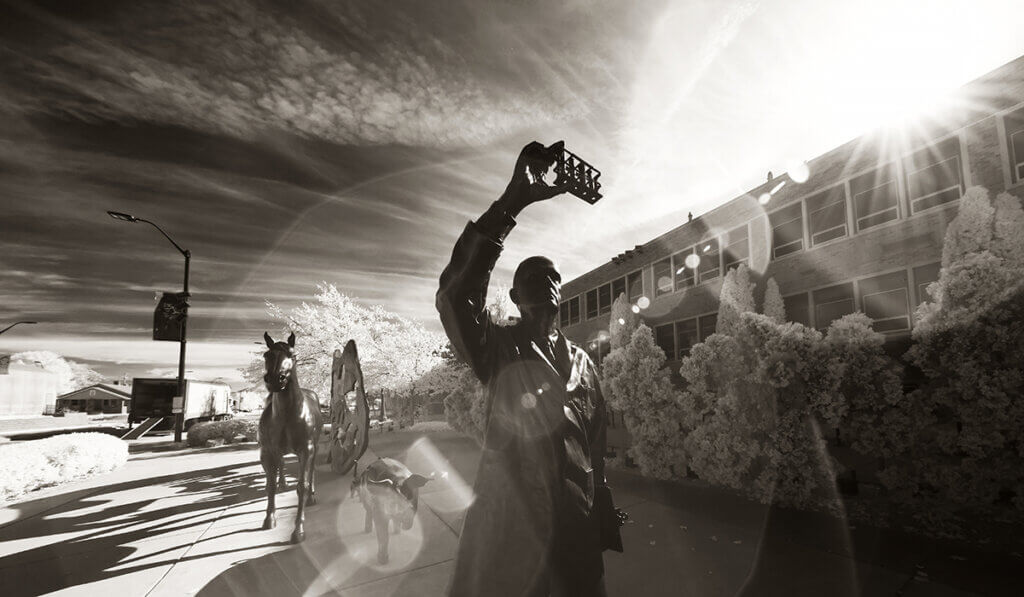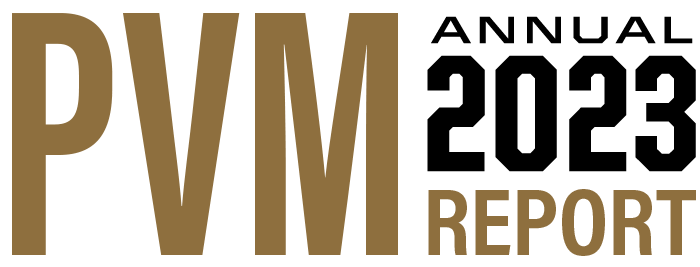
The Purdue University College of Veterinary Medicine’s research enterprise reached a record level of funding in the most recent fiscal year (2022/2023), exceeding $15 million, which represents an increase of more than 6.5% over the preceding year. About 60% of the college’s research funding comes in the form of grants from the prestigious National Institutes of Health (NIH).
Examples of the innovative research efforts carried out by the college’s faculty and their research teams include a study of an emerging fungal pathogen identified by key health agencies as an urgent threat, and research on liver cancer and RNA therapeutics. Both projects are detailed in stories on subsequent pages, and reflect the college’s focus on multidisciplinary approaches to scientific discovery that have the potential to advance both animal and human health.
“Reaching this funding milestone in our college reflects the dedication and talents of our faculty, staff, and students,” said Dr. Harm HogenEsch, associate dean for research. “It validates our vision of research that is comparative — studying diseases across species — and translational in nature, which puts us in a strong position when seeking research grants. Whether the studies involve basic science, or clinical research, there’s always a view toward enhancing the health and well-being of animals and people.”
PVM faculty collaborate with scholars from across the Purdue University campus as well as at the Indiana University School of Medicine and colleges and universities abroad. As part of its strategic plan, the college maintains five signature research programs: Infectious Diseases and Immunology; Cancer; Neuroscience; Musculoskeletal Biology and Orthopedics; and Animal Welfare Science and the Human-Animal Bond.
“By focusing on specific areas of strength in our college, while also building strong multidisciplinary teams, we maximize our potential to consistently submit strong, competitive grant requests,” Dr. HogenEsch said. “This approach has been pivotal to our success.”
The research funding received by the college not only advances medical science, but also supports vital training for the next generation of biomedical scientists. Departmental graduate degree programs and Purdue’s Interdisciplinary Biomedical Sciences Program provide advanced research training leading to Master of Science or PhD degrees. Additionally, post-doctoral fellows work in laboratories as they prepare for their research careers. The Purdue Post-Baccalaureate Research Education Program (PREP) for translational biomedical sciences, funded by the NIH, provides one year of research training and prepares students from diverse backgrounds for admission to graduate programs. Furthermore, even veterinary and pre-vet students have the opportunity to gain practical research experience by working with faculty mentors through the Veterinary Research Scholars Summer Program.
“We are excited to see the growing success of our PVM research programs in attracting funding from multiple sources that focus on advancing veterinary and medical sciences,” said Dr. HogenEsch. “Ultimately, it is our desire to make scientific discoveries that improve animal and human health and well-being.”

